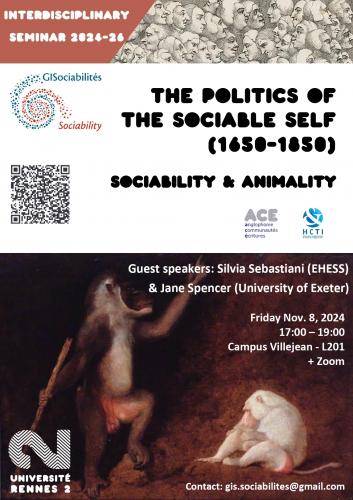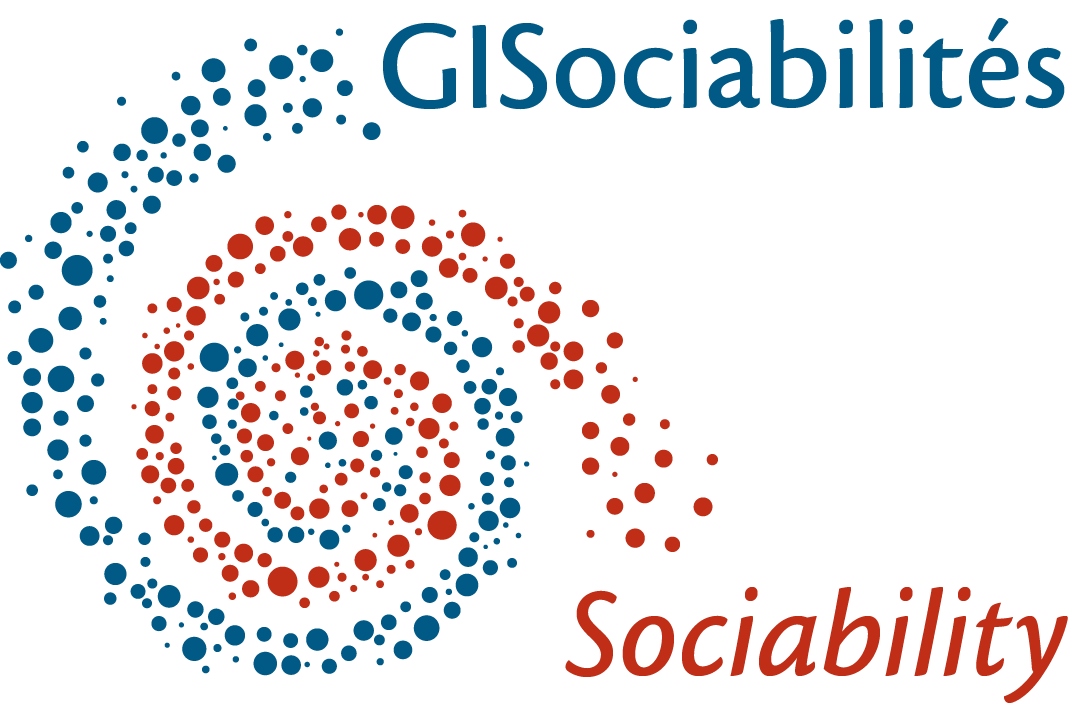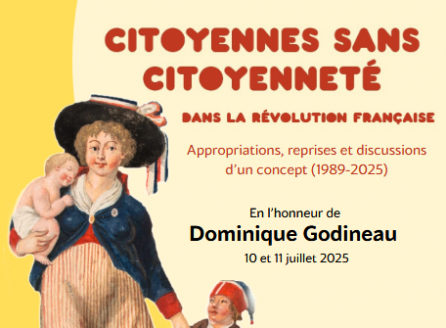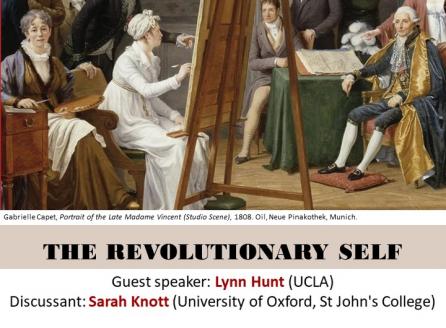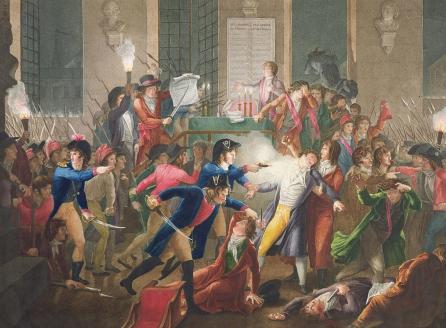GIS Interdisciplinary Seminar : 'Sociability & Animality'
GIS Sociabilités seminar The Politics of the ‘Sociable Self’: Theories and Practices (1650-1850)
First thematic session on 'Sociability & Animality', 8 November 2024 from 17:00 to 19:00, Université Rennes 2.
Chairs: Sophie Mesplède (Université de Rennes 2) & Kimberley Page-Jones (Université de Bretagne Occidentale)
Silvia Sebastiani, EHESS Paris - 'A social orang-utan? Enlightenment debates on the borders of humanity'.
The “orangutan”, or “man of the woods”, entered Europe in the mid-17th century through early treatises on medical casuistry. Its anatomy, behavior, tool use, and sociability prompted eighteenth-century anatomists, naturalists, and philosophes to question its nature and, by extension, the nature of “man” through comparative reasoning. Is society a uniquely human prerogative, or do structured animal societies exist? Is man inherently social or solitary? Is bipedalism natural to humans, or is an upright posture the result of education? Is language exclusive to humans? Conversely, does the great ape belong to the human species? Is it perfectible? Is it sociable? Defining the boundaries of humanity became central to Enlightenment debates, where great apes played a pivotal role.
___________________________________________________________________________________________
Jane Spencer, University of Exeter - 'A ‘fellowship of sense with all that breathes’: human—animal bonds and human sociability in poems by Barbauld, Cowper, Byron and Clare'.
As interest in the ‘animal question’ intensified in the late eighteenth and early nineteenth centuries, the idea of possible sympathy between human and animal based on shared sensation – what Anna Letitia Barbauld called the ‘fellowship of sense with all that breathes’ – began to influence expectations about human sociability. This paper identifies a tension at the heart of the discourse of human—animal sympathy. Compassion for animals acted as a guarantor of ‘humanity’ (understood both as human status and humaneness), and was therefore a prerequisite for human friendship; on the other hand, a very high degree of animal sympathy could set a human being apart from his or her own species and thus preclude full entry into human society. Barbauld’s ‘The Caterpillar’, William Cowper’s The Task, Byron’s ‘Mazeppa’ and John Clare’s birds’ nest poems explore in different ways the relationship between sympathetic human-animal bonds and the pleasures and demands of human sociability.
